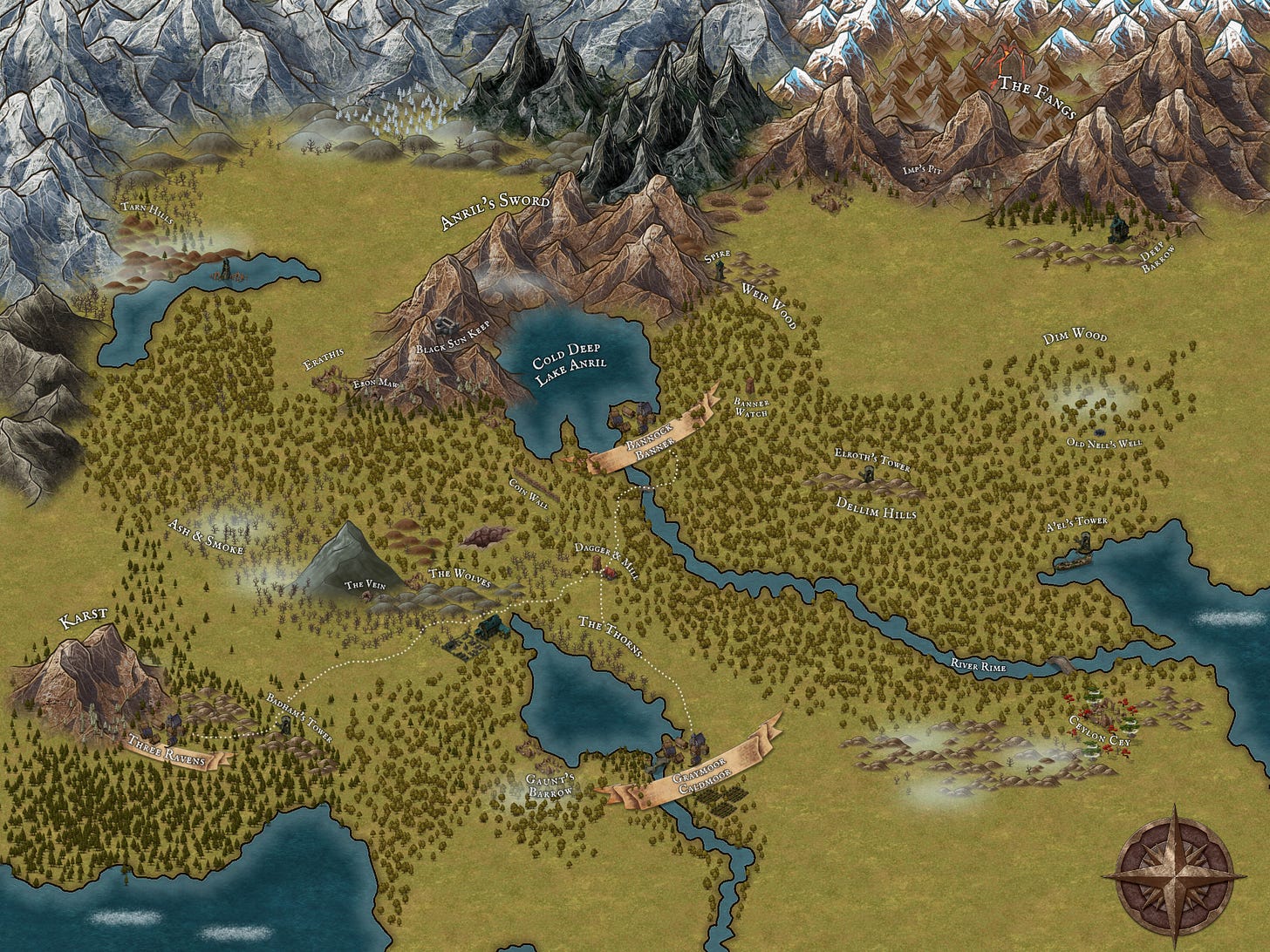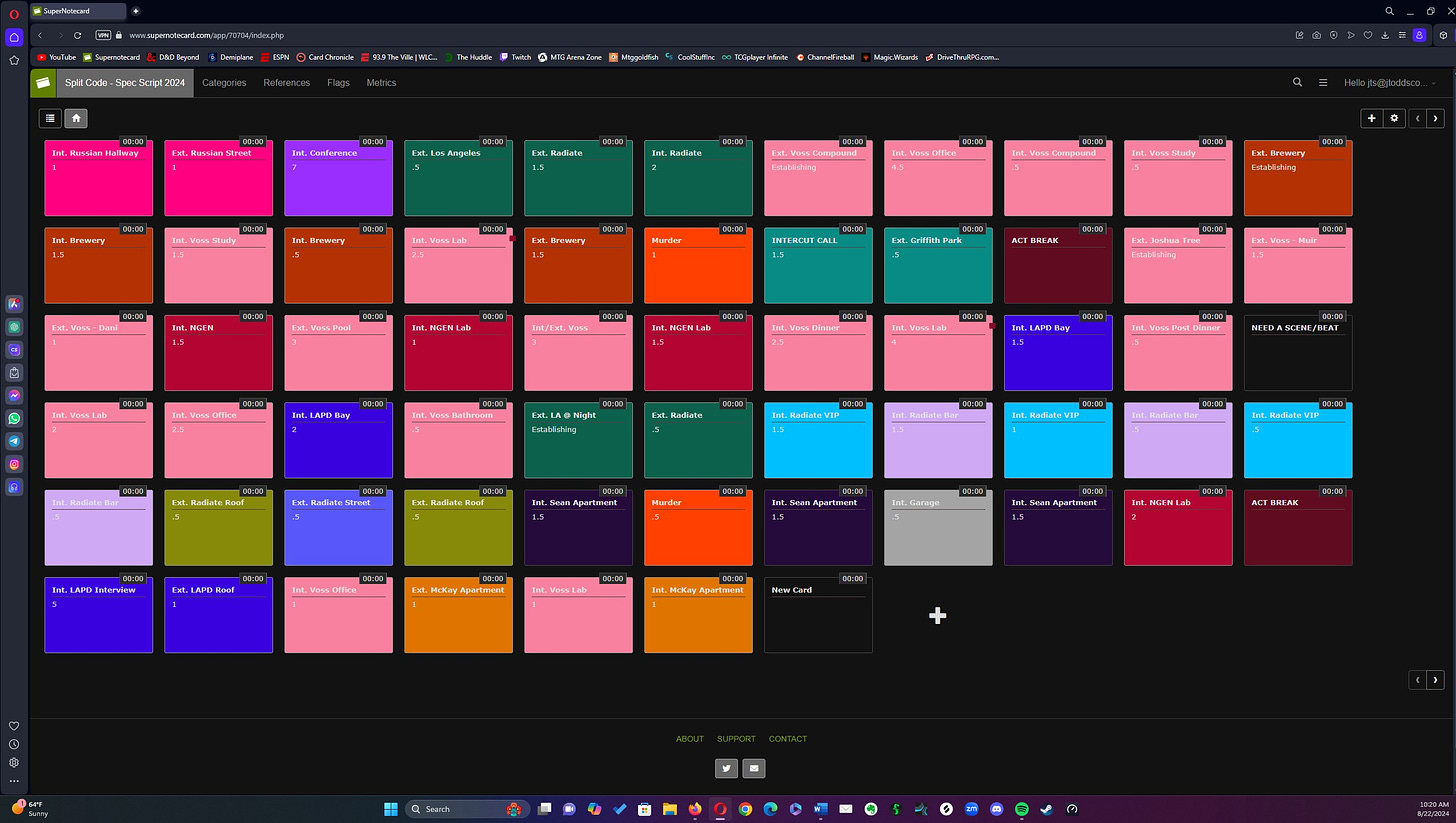I wasn’t a big podcast person until the last two or three months. Now I track and listen to several, and one my favorites is Scriptnotes, hosted by John August and Craig Mazin, both extremely accomplished screenwriters, and very generous ones. Scriptnotes is an inside look at the industry from two writers who live and breathe it, and I’ve found it to be a tremendous resource.
In one of their latest episodes (654), titled “How to watch bad movies,” they discuss the value for working screenwriters of closely studying even those movies that don’t work for you; to consciously ask yourself what it is about the movie that you’re bumping against? The story? Genre? Musical score? No one sets out to write a bad movie or novel, and yet they happen all the time. As part of their broader discussion, Craig observed that every writer needs to “write toward something”—your work should reflect a positive, proactive destination; i.e., whatever it is you’re trying to achieve, whatever prompted you to undertake this particular writing journey to begin with. Maybe it’s a thematic element. Maybe you’ve always wanted to do your own take on an alien invasion. Maybe there’s a character you can’t stop thinking about. I think the point he was circling is that your work best isn’t just “about” something (although it most certainly is), it should also be “going” somewhere.
And if you don’t know where you’re going, how can you expect the reader to follow?
I know with The Far Empty I wanted to explore the burden of authority and the weight of the badge; a theme I returned to in my subsequent Big Bend Books, High White Sun and This Side of Night, although both those novels also had destinations of their own—in HWS I’d long wanted to write about undercover work, and in TSoN, I hoped to draw (in my own small way) attention to the 2014 student disappearances in Iguala, a story that had fascinated me for some time. In Lost River, I wanted to talk about home; what it means, and question whether you can ever escape it. The Flock was a rumination on believe and faith, and how perception can skew both.
All those books were “about other things” too. They had plots (journeys) that took me far afield, but I never lost sight of the final destination.
I can honestly say that Call the Dark is the only book I’ve written that I don’t recall writing “to something,” which is weird because that book is primarily only a journey—a mountain chase—from start to finish. I kind of backed into that story though, and as I’ve said before, I got stuck on that mountain with my characters for a while, trying to figure out how to get down. Maybe I didn’t really know WHAT I was writing about, so I never had a real destination in mind? I finally got through it and it was well received, but is it any less of a book than my others? I guess that’s always and only for the readers to decide, but it definitely felt different to write than any of my others, and something I’ve kept in mind as I’ve started real work on the new book, Black Horses…
Right now, I’m making progress on that book, as well as my spec screenplay—
We also got studio notes on the project I went out to LA for most recently, so I’m in discussions with the showrunner about them; how we’ll address them and such. I thought the notes showed a real love for what we’re proposing, and reflect mostly a desire for only more of the stuff that we all liked.
They GET what we’re doing…they know where we’re going…and so do we…
Next week I’ll be in Nashville for Bouchercon. Look for some Substack Notes from there!
As always, feel free to—






